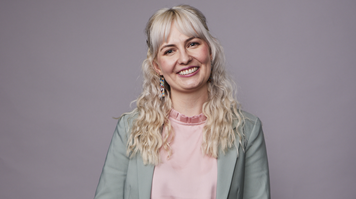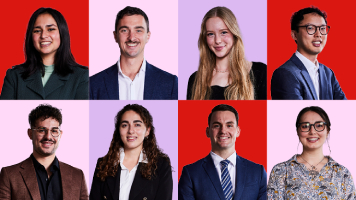Powering the People: The Human Side of Australia’s Clean Energy Future

As the world pivots towards a cleaner, more sustainable future, a diverse group of innovators are working tirelessly behind the scenes to ensure that Australia’s energy transition is successful, equitable, and inclusive.
One such innovator, 2020 Westpac Future Leader, Lachlan Watson, works with the ANU Centre for Energy Systems (ACES) at the intersection of technical innovation, community engagement, and energy system transformation. His work spans a wide array of areas, all aimed at making Australia’s energy future greener, smarter, and more equitable for everyone.
“I’m excited about Australia’s potential to lead the global clean energy revolution,” says Watson. “By developing and exporting cutting-edge energy solutions, Australia can create not only environmental benefits but also significant economic advantages.”
People-First Electricity Design
At the core of Lachlan’s work is the belief that energy systems should be designed with people in mind. With one in three households now boasting rooftop solar, Watson and his colleagues are looking at innovative ways to integrate into the electricity grid the substantial energy produced from these valuable assets. ACES is working with industry, government, and academic partners to design solutions that are cost effective, maintain system strength and security and move Australia towards its 2050 net carbon target.
Lachlan and his team are exploring new avenues like vehicle-to-grid technology, neighbourhood-scale batteries, microgrids, and green hydrogen. These technologies aim to enable the energy transition but also ensure that everyone benefits from it.
“By putting people first, we’re helping build a clean energy future where every household, no matter their location or income level, can participate in the transition and benefit from it,” says Watson.
Developing Common Standards for a Smarter Grid
Another area where Lachlan and ACES are playing a key role is supporting efforts to create a "common language" for smart energy devices, like solar panels and batteries, so they can all communicate with each other and the energy grid. This helps these devices work better together, making the energy system more reliable and efficient. It also makes it easier for small businesses to bring new energy products to the market since there are fewer technical challenges. For regular households, this means more stable power, better ways to earn money from solar energy, and easier integration of renewable energy sources without causing problems for the grid.
Making new energy technologies work for all Australians
To assist customers to receive benefits from their rooftop solar and home batteries, another initiative ACES is working on is ‘dynamic pricing’. Through the development of dynamic price signals, customers can participate in energy markets and earn money by selling their excess solar into the grid.
But not everyone can afford solar panels and home batteries, and it is important that the energy transition benefits all Australians. For that reason, ACES has a team of social scientists that work alongside technical researchers to consider the outcomes of new technologies on a broad range of Australian households, providing evidence-based research on equity issues to inform government policies and initiatives.
This commitment to equity will ensure that no one is left behind in the energy transition.
Applications are now open for 2026 Future Leaders Scholarships. If you’re ready to take the leap, apply for a Westpac Future Leaders scholarship now.


